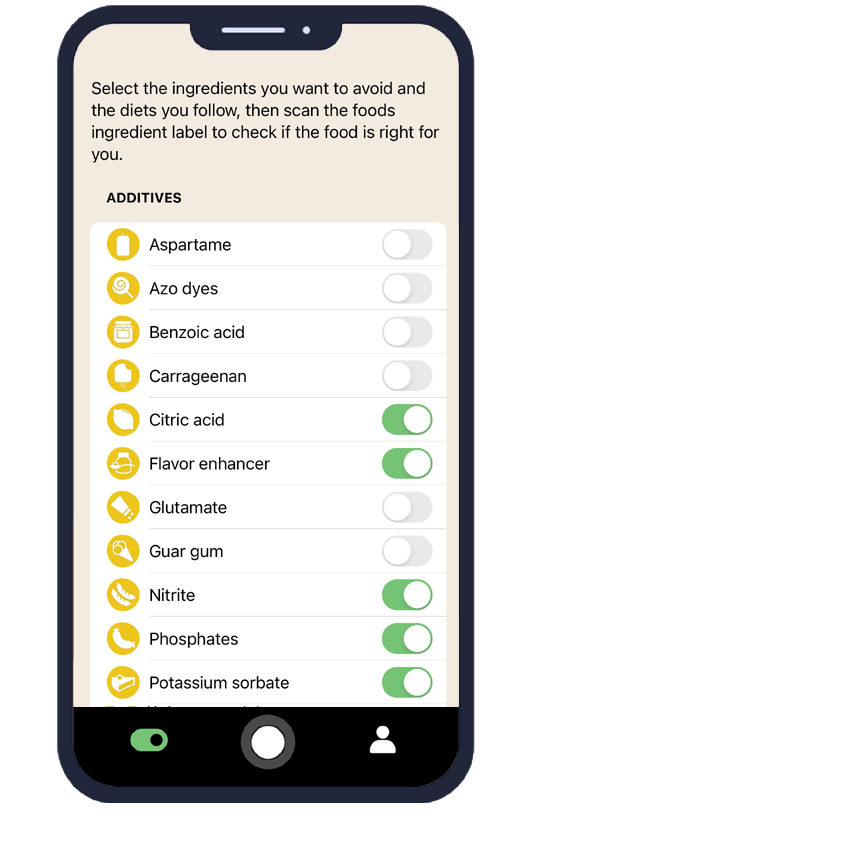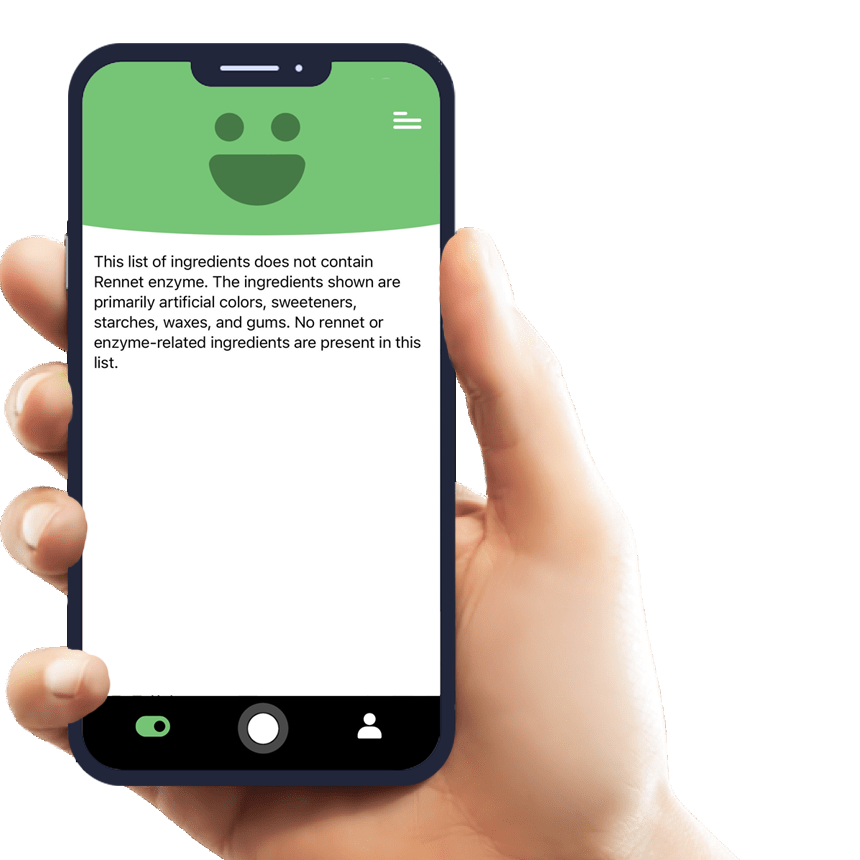Everything You Need to Know About Coconut and How AI Eat This Can Help
Coconut has become increasingly prevalent in modern food products, appearing in everything from processed snacks to beverages and baked goods. For individuals with coconut allergies, intolerances, or specific dietary restrictions, identifying this ingredient can be challenging due to its various forms and alternative names on food labels.
The AI Eat This mobile app revolutionizes how consumers manage their dietary needs by instantly scanning ingredient lists and identifying coconut in any language. This innovative tool empowers users to make informed food choices quickly and confidently, whether they're dealing with allergies, following specific diets, or simply wanting to avoid certain ingredients.
What Is Coconut and Where Is It Used?
Coconut refers to various products derived from the coconut palm (Cocos nucifera), including coconut oil, coconut flour, coconut milk, desiccated coconut, and coconut extract. These ingredients serve multiple purposes in food manufacturing, from providing flavor and texture to acting as natural preservatives and emulsifiers.
The food industry extensively uses coconut-derived ingredients due to their versatility and functional properties. Coconut oil, for instance, provides stability and extends shelf life in processed foods, while coconut flour serves as a gluten-free alternative in baking applications.
Common Foods Containing Coconut
Coconut appears in numerous food products, often in unexpected places. Understanding where to look for this ingredient helps consumers make better dietary choices:
- Baked goods and desserts (cookies, cakes, macaroons)
- Chocolate and confectionery products
- Processed snack foods and granola bars
- Non-dairy milk alternatives and creamers
- Curry pastes and Asian cuisine products
- Ice cream and frozen desserts
- Protein bars and health food products
Is Coconut Safe? What Does the Research Say?
For the general population, coconut and its derivatives are considered safe food ingredients. The U.S. Food and Drug Administration (FDA) recognizes coconut as Generally Recognized as Safe (GRAS) for use in food products. Similarly, the European Food Safety Authority (EFSA) has evaluated coconut-based ingredients and found them safe for consumption.
Regulatory Approvals and Guidelines
Health authorities worldwide, including the World Health Organization (WHO), have not established specific intake limits for coconut consumption in healthy individuals. The ingredient's long history of safe use in traditional diets supports its continued approval in modern food production.
However, regulatory bodies emphasize the importance of proper labeling to protect consumers with allergies or dietary restrictions. Food manufacturers must clearly indicate coconut presence on ingredient lists to ensure consumer safety.
Risks for Specific Groups
While generally safe, coconut can pose risks for certain individuals. Those with tree nut allergies may experience cross-reactivity, though coconut is botanically classified as a fruit rather than a true tree nut. Some people develop specific coconut allergies, experiencing symptoms ranging from mild digestive discomfort to severe allergic reactions.
How Does AI Eat This Help You Avoid Coconut?
The AI Eat This app transforms coconut avoidance from a time-consuming label-reading process into a simple scan-and-go solution. Users can photograph ingredient lists, and the app's artificial intelligence instantly identifies coconut and its various forms, regardless of the language on the packaging.
The app's personalized filter system allows users to set specific dietary preferences, including coconut avoidance. Once configured, the app provides immediate alerts when scanning products containing this ingredient, making grocery shopping safer and more efficient for those with dietary restrictions.
This technology proves particularly valuable when traveling or shopping in international markets where ingredient names may appear in unfamiliar languages or alternative forms. The app's multilingual capabilities ensure consistent protection regardless of location.
Who Should Avoid Coconut?
Several groups benefit from avoiding coconut in their diets. Individuals with diagnosed coconut allergies must strictly eliminate all coconut-derived ingredients to prevent allergic reactions. Those with coconut intolerance may experience digestive symptoms and should limit or avoid consumption based on their tolerance levels.
People following specific dietary protocols, such as certain elimination diets or medical nutrition therapies, may need to avoid coconut temporarily or permanently. Additionally, some individuals choose to avoid coconut for personal, cultural, or environmental reasons.
Healthcare providers may recommend coconut avoidance for patients with certain medical conditions or those undergoing allergy testing protocols. In these cases, strict adherence to dietary restrictions becomes crucial for accurate diagnosis and treatment.
Tips for a Coconut-Free Diet
Successfully maintaining a coconut-free diet requires vigilance and practical strategies. Always read ingredient labels carefully, as coconut can appear under various names including cocos nucifera, coconut extract, or coconut derivatives.
Focus on whole, unprocessed foods when possible, as these naturally contain fewer hidden ingredients. When dining out, communicate clearly with restaurant staff about your dietary restrictions and ask about cooking oils and preparation methods.
Utilize technology like AI Eat This to streamline the ingredient-checking process. The app's database continuously updates to include new products and formulations, ensuring comprehensive coverage of coconut-containing items.
Build a repertoire of trusted coconut-free brands and products to simplify shopping decisions. Many manufacturers now offer coconut-free alternatives to popular products, expanding options for those with dietary restrictions.
Conclusion
Understanding coconut as a food ingredient empowers consumers to make informed dietary choices based on their individual needs and restrictions. While coconut remains safe for most people, those with allergies, intolerances, or specific dietary requirements benefit from reliable identification methods.
The AI Eat This app provides an invaluable tool for managing coconut avoidance, offering instant ingredient recognition and personalized filtering capabilities. This technology simplifies the challenge of maintaining dietary restrictions while ensuring food safety and peace of mind.
Take control of your dietary management today – download AI Eat This for free testing and experience how artificial intelligence can transform your approach to food ingredient identification and coconut avoidance!

70 filters
With over 70 filters, you can easily avoid certain ingredients and follow your dietary preference.

Paleo

Pescetarian

Ultra-processed food

Vegan







































































